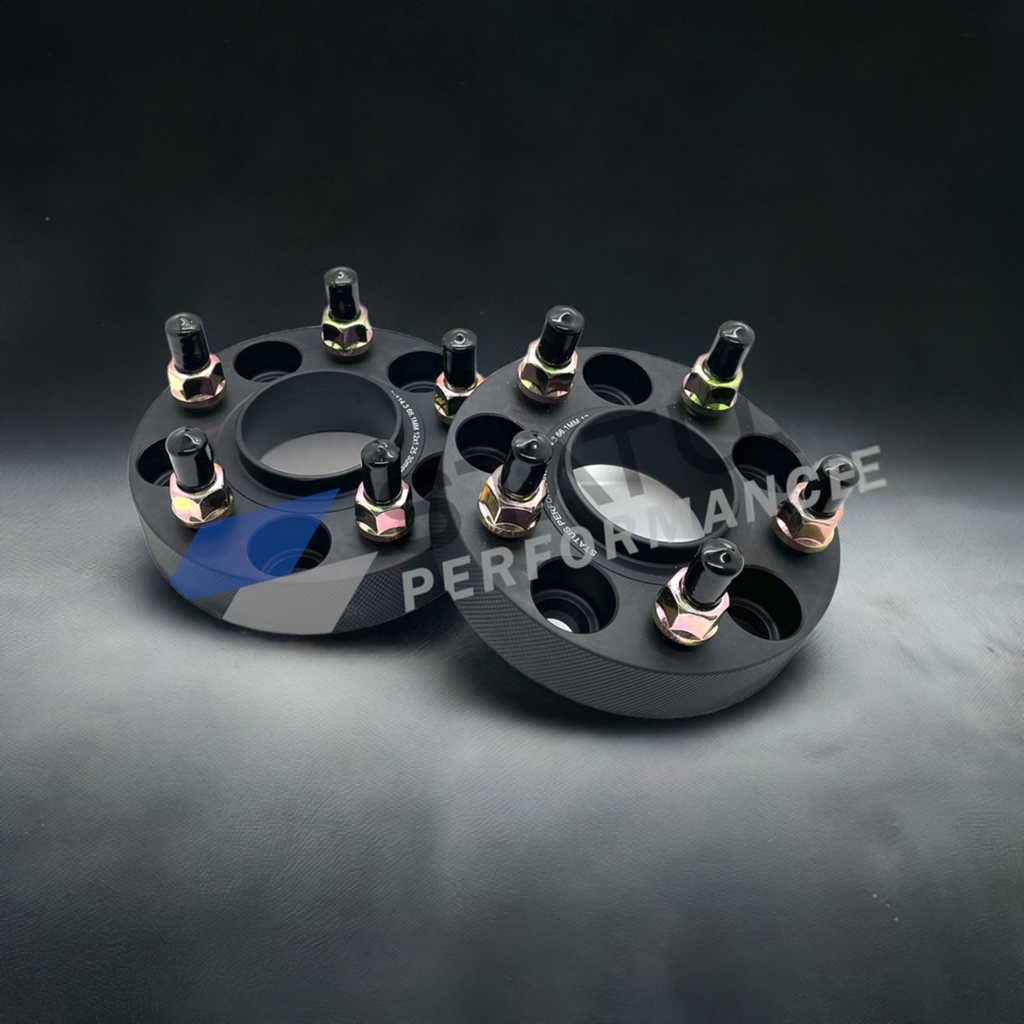
Questions about spacers?
Below, we'll answer the top 10 most common questions regarding Wheel Spacers, and Installation.
10 FAQs About Spacers
1. Are wheel spacers safe to use, and legal?
Yes and depends, wheel spacers are safe when high-quality spacers are used, and they are installed properly. They must match your vehicle’s specifications, be made from durable materials (like T6 aluminum), and ensure proper fitment to avoid any issues with alignment or vibration. Poorly manufactured or incorrectly installed spacers can pose safety risks. It also depends on your local laws, for the most part when installed on a vehicle appropriately, and properly fitting (ie. not sticking past the fender), spacers should be fine - however local inspection offices do have the authority to say otherwise.
Check out our Blog post which go over this topic in much more detail:
Are Wheel Spacers Safe and Legal?
2. How do I choose the correct size of wheel spacers for my vehicle?
To select the right size: (example for a 2007 Nissan 350Z)
- Measure your bolt pattern (e.g., 5x114.3).
- Check the hub bore size, to ensure it’s hub-centric e.g., 60.1 mm).
- Determine the thickness (20mm) needed by measuring the gap between your wheel and fender for the desired clearance.
If unsure, consult your vehicle manual or seek advice from a specialist. Most brands also provide guides for specific vehicle makes and models. - Also make sure to match the thread pitch (e.g., 12x1.25).
3. Will wheel spacers affect my vehicle's performance or handling?
Properly installed wheel spacers can improve handling by widening the track width, offering better stability and cornering. However, excessively thick spacers or incorrect installation can negatively affect performance by putting extra stress on suspension components, bearings, and studs. Using appropriate thicknesses and ensuring balanced installation is crucial to avoid these issues.
4. Do wheel spacers require longer wheel studs or special hardware?
In some cases, yes. If your spacer thickness exceeds the length of your factory studs, you’ll need extended wheel studs or bolt-on spacers that have their own studs. Always check the thread engagement to ensure the lug nuts tighten securely (at least 6-8 turns for most vehicles).
5. Can wheel spacers cause vibration or damage?
When installed correctly, wheel spacers should not cause vibrations or damage. Vibrations often occur if the spacers are not hub-centric (where the spacer perfectly centers on the hub) or if lug nuts are not torqued properly. Always use hub-centric spacers and recheck the torque after a short drive to prevent loosening.
6. Are wheel spacers reversible or removable?
Yes, wheel spacers are removable. They do not cause permanent modifications to your vehicle, provided they are installed correctly. However, ensure no corrosion occurs between the spacer and hub by cleaning the surfaces and using anti-seize compounds if necessary.
7. What materials are wheel spacers made of, and how does that affect quality?
High-quality wheel spacers are typically made of aircraft-grade aluminum (e.g., T6-6061) or steel. Aluminum spacers are lightweight and resistant to corrosion, making them ideal for most vehicles. Steel spacers are heavier but offer additional strength, which can be beneficial for heavy-duty applications or off-road vehicles.
8. Will wheel spacers make my wheels stick out too far?
The amount your wheels stick out depends on the thickness of the spacers. To avoid making your wheels extend excessively, measure the distance from your wheel face to the edge of the fender and choose a spacer thickness that fits within that range. Ensure the tires remain within legal limits to avoid compliance issues.
9. Are wheel spacers compatible with aftermarket wheels?
Yes, wheel spacers can work with aftermarket wheels as long as the bolt pattern, hub bore, and spacer thickness are compatible with your setup. Some aftermarket wheels might require spacers to achieve proper clearance from brake calipers or suspension components.
10. Do I need professional installation for wheel spacers?
While experienced individuals can install wheel spacers themselves with proper tools (like a torque wrench), professional installation is recommended to ensure correct fitment and torque specifications. A professional can also inspect for potential issues, such as improper thread engagement or interference with other components.
